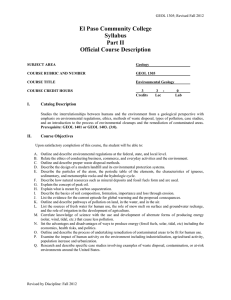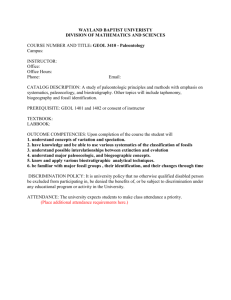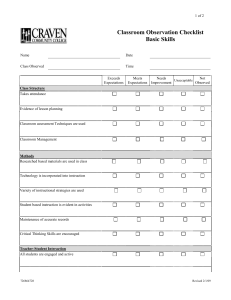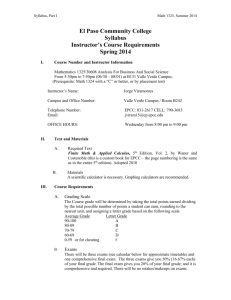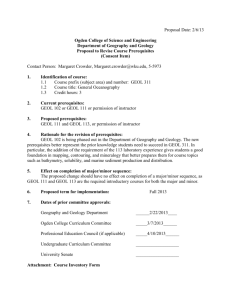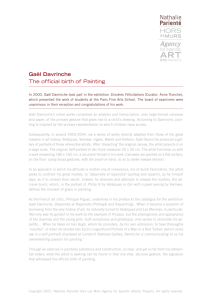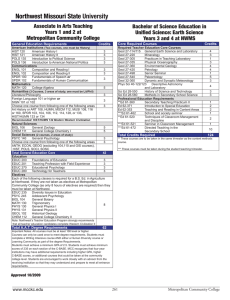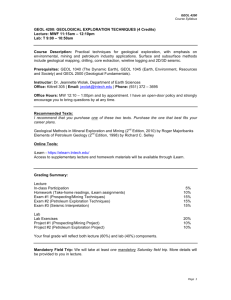GEOL 1401 Official Course Description
advertisement
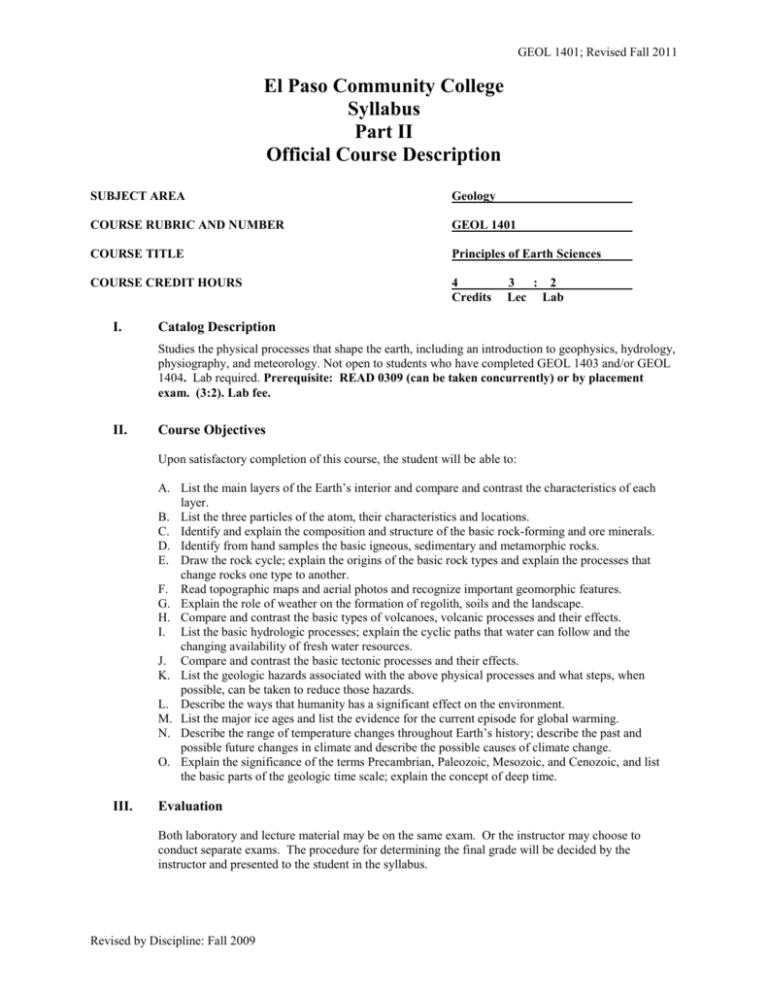
GEOL 1401; Revised Fall 2011 El Paso Community College Syllabus Part II Official Course Description SUBJECT AREA Geology COURSE RUBRIC AND NUMBER GEOL 1401 COURSE TITLE Principles of Earth Sciences COURSE CREDIT HOURS 4 Credits I. 3 : 2 Lec Lab Catalog Description Studies the physical processes that shape the earth, including an introduction to geophysics, hydrology, physiography, and meteorology. Not open to students who have completed GEOL 1403 and/or GEOL 1404. Lab required. Prerequisite: READ 0309 (can be taken concurrently) or by placement exam. (3:2). Lab fee. II. Course Objectives Upon satisfactory completion of this course, the student will be able to: A. List the main layers of the Earth’s interior and compare and contrast the characteristics of each layer. B. List the three particles of the atom, their characteristics and locations. C. Identify and explain the composition and structure of the basic rock-forming and ore minerals. D. Identify from hand samples the basic igneous, sedimentary and metamorphic rocks. E. Draw the rock cycle; explain the origins of the basic rock types and explain the processes that change rocks one type to another. F. Read topographic maps and aerial photos and recognize important geomorphic features. G. Explain the role of weather on the formation of regolith, soils and the landscape. H. Compare and contrast the basic types of volcanoes, volcanic processes and their effects. I. List the basic hydrologic processes; explain the cyclic paths that water can follow and the changing availability of fresh water resources. J. Compare and contrast the basic tectonic processes and their effects. K. List the geologic hazards associated with the above physical processes and what steps, when possible, can be taken to reduce those hazards. L. Describe the ways that humanity has a significant effect on the environment. M. List the major ice ages and list the evidence for the current episode for global warming. N. Describe the range of temperature changes throughout Earth’s history; describe the past and possible future changes in climate and describe the possible causes of climate change. O. Explain the significance of the terms Precambrian, Paleozoic, Mesozoic, and Cenozoic, and list the basic parts of the geologic time scale; explain the concept of deep time. III. Evaluation Both laboratory and lecture material may be on the same exam. Or the instructor may choose to conduct separate exams. The procedure for determining the final grade will be decided by the instructor and presented to the student in the syllabus. Revised by Discipline: Fall 2009 GEOL 1401; Revised Fall 2011 LECTURE A. Exams and Quizzes. The number, frequency and type of quizzes and exams are left to the discretion of the instructor. B. Grading: Above 90 80-89.9 70-79.9 60-69.9 Below 60 =A =B =C =D =F LABORATORY Lab exercises are required for each unit. Homework and papers may be assigned, corrected and graded as the instructor decides. IV. Disability Statement (American with/Disabilities Act [ADA]) EPCC offers a variety of services to persons with documented sensory, mental, physical, or temporary disabling conditions to promote success in classes. If you have a disability and believe you may need services, you are encouraged to contact the Center for Students with Disabilities to discuss your needs with a counselor. All discussions and documentation are kept confidential. Offices located: VV Room C-112 (831-2426); TM Room 1400 (831-5808); RG Room B-201 (831-4198); NWC Room M-54 (831-8815); and MDP Room A-125 (831-7024). V. 6 Drop Rule Students who began attending Texas public institutions of higher education for the first time during the fall 2007 semester or later are subject to a 6-Drop limit for all undergraduate classes. Developmental, ESL, Dual Credit and Early College High School classes are exempt from this rule. All students should consult with their instructor before dropping a class. Academic assistance is available. Students are encouraged to see Counseling Services if dropping because exemptions may apply. Refer to the EPCC catalog and website for additional information. Revised by Discipline: Fall 2009
